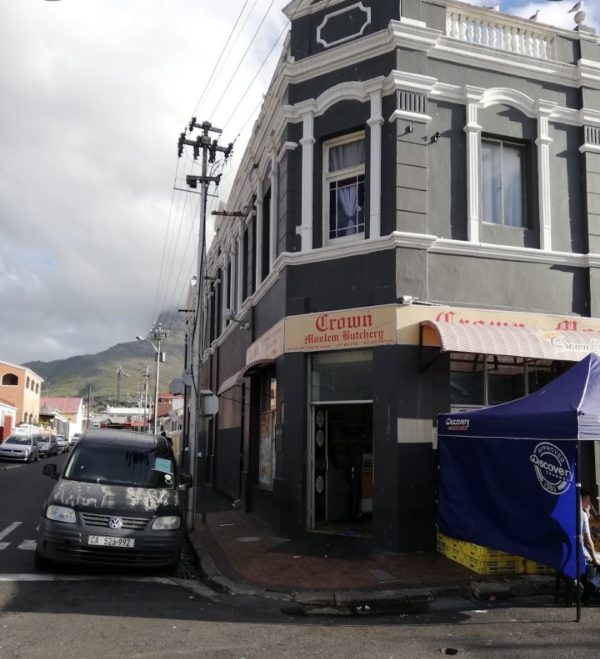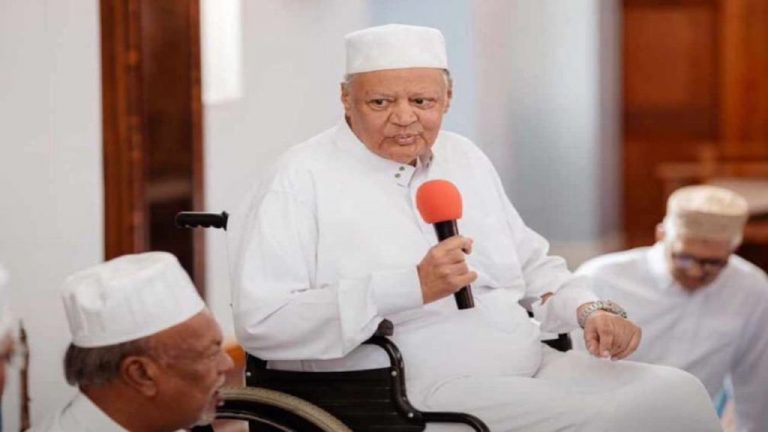Over the weekend, a pillar of the Salt River community passed away.
Gasant Abarder fondly remembers in this #SliceofGasant column how Boeta Dullah of Crown Butchery was a big part of a special day of cricket that helped shaped his youth and presented him with a model of generosity of spirit rarely seen.
On Sunday, the entire Salt River community was in mourning for the passing of Hajj Abdullah Abbas – the owner of the famous Crown Butchery on the corner of Pope and Goldsmith Roads in the heart of the suburb.

Before I was born, Boeta Dullah was serving the community. When you purchased meat, you always ended up with more, my parents would fondly tell us.
Boeta Dullah was unassuming: the embodiment of piety, faith, generosity and selflessness for his community. There was a particular day I’ll never forget that he was a big part of. It coincided with a historic moment for South African cricket.
On a day in 1991, Allan Donald rubbed a shiny new cricket ball against the inside of his trousers. There was a hush around Eden Gardens, Calcutta, as he started his run-up. Seconds later the violent sound of leather hitting willow as the ball raced to the boundary – four runs off one of South Africa’s first balls back in international cricket.
Donald looked to the heavens as if to ask for mercy.
Sometime later that year, Kashief Appolis looked a bundle of nerves as he gingerly brushed a new cricket ball on the front of his white cricket pants. His mom wouldn’t be happy with the indelible red stain. He ambled in to deliver a ball at the ground in Rondebosch. Seconds later, the violent sound of leather hitting willow as the ball raced to the ropes.
Apollis stood dead in his tracks. The sound was like a gunshot that, at times, would punctuate life in Salt River.
The day held much promise for a few young Salt River boys. All over South Africa, times were changing. The air was ripe with opportunity.
What seemed like hundreds of thousands packed into the intimidating arena to witness South Africa play hosts India on their return to international cricket. It was complete bedlam.
Now, a posh school was hosting a rag-tag side from Salt River, drawn from various schools in the area.
An hour earlier, the whole team somehow managed to file into Boeta Dullah’s Toyota Cressida. He was the first to help when there was a need in the community and this day was no different.
Boeta Dullah chose the M3 so we could avoid traffic. Minutes later, it felt like we had warped to a different world – away from the smoke, traffic and noise of Salt River.
The M3 was lined with beautiful trees that created a canopy that played with the sunlight and made it dance in the car.
I was apprehensive. We all were. We seldom met white kids and would laugh when our friends changed their heavy Cape Flats accents to speak to white people.
We watched South Africa play that match in India on TV the week before. This day, we were making our own history. We’d never played on a field as beautiful as this. It was manicured with a specially prepared square that had a real playing pitch. We usually played on artificial pitches or mats.
It took a while to take it all in. There were massive trees surrounding the playing oval, a scoreboard took pride of place and parents on their camp chairs had picnic baskets filled with snacks.
(Our parents couldn’t make it. They were at work. In fact, they hardly came to our games because they were always working.)
When we arrived, our hosts formed a guard of honour to clap us onto their Eden Gardens. But this really could have been the Garden of Eden. It was that beautiful. The air smelt of hops and spring and squirrels darted around the trees.
We were conscious of our mix-and-match kit as our opponents were in proper uniform with brands like Kookaburra, Gunn & Moore and Gray Nicholls. We worried our hand-me-downs and two sets of batting pads we shared would be laughed at. But each boy stepped up to shake our hands.
Someone dropped a catch in the warm-up because he was busy marvelling at a squirrel. Our captain called us in a huddle and told us to give their batters the verbals – otherwise known in cricket as sledging – to break their concentration.
I’m not sure if those lads had ever heard such words that would’ve made their moms and dads blush. Our coach glared at us at the innings break as we feasted on the spread laid out for us.
That afternoon, which seems a lifetime ago, we held our own: a team of misfits against a group of polished schoolboy cricketers. Their parents cheered us on, and we chatted freely with the boys about their bats, their kit and the game.
We made friends and said our goodbyes, knowing we weren’t that different to these boys, and left their planet for our world, barely 20 minutes away.
Boeta Dullah played no small part in that memorable day. Taking the time out to transport us to this important event may have been one of the lesser good deeds he was known for. But to an impressionable young boy, it left a lasting impression of how to live your life.
More than 30 years on, Boeta Dullah would have seen Salt River transforming as the creep of gentrification settled in. But his business stood the test and has weathered rough spells of bowling because it was modelled on his values.
May the Almighty grant him a special place in paradise and offer his family comfort and patience as they grieve a special human being who was a pillar in his community.
ALSO SEE: Renowned chef Fatima Sydow passes away after brave battle with cancer
Renowned chef Fatima Sydow passes away after brave battle with cancer
Feature image: Supplied
Article originally published by Cape etc

